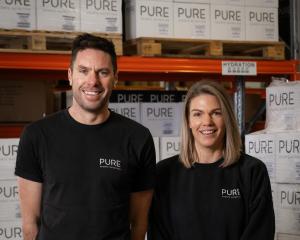
When the Burnside cement works closed, staff were called to a meeting by management. A top union official suspected the announcement was to close the plant.
He picked me up in his car outside the Otago Daily Times and we headed out to the meeting. I discarded my tie and jacket and walked in to the meeting surrounded by union members and delegates to report first-hand on the meeting from which other media representatives were banned.
During the massive Clyde Dam strike, the ability to tell the inside stories from both management and union perspectives meant providing a straight story. Each side knew the other would be contacted for comment and as long as you played nicely, the stories continued to flow.
Photographers Stephen Jaquiery and Gerard O’Brien were my main compatriots when plants were being closed down. Alerted to the impending announcements, they could position themselves to get the most telling pictures of the despair workers experienced when they were told their jobs were gone. Many firms announce their closures on Fridays. Having strong and reliable contacts meant I was often alerted on a Thursday night to the impending redundancies and could write a preview for the Friday edition.
Probably the highlights of using sources were on two political, rather than business, occasions. The Labour Party held its conference in Dunedin in 1988 when Jim Anderton was to challenge for the party leadership as trade unionist Rex Jones retired. Instead of anxiously waiting outside the doors of the meeting in the Southern Cross Hotel, I waited in the office for a phone call from a union delegate inside the meeting. The ODT scooped the country in reporting Mr Jones warning union delegates not to support Mr Anderton and instead support Ruth Dyson in the vote the following day. Ms Dyson, a current MP, went on to win the ballot, Mr Anderton stormed out of the Dunedin Town Hall and eventually went on to form New Labour with the help of several Dunedin trade union representatives.
The other occasion was Richard Prebble talking to union delegates in the YWCA hall, in Moray Pl. The ODT was warned to not even stand close to the door as Mr Prebble announced his plans for rail. Fortunately, union people were only too pleased to tell the newspaper rail was for sale.
How times have changed. Now, communications executives manage news within a millimetre of its life. If you want to talk to a chief executive, you cannot just phone. Instead, you make an appointment and are often asked to supply a list of questions.
Embargoes are placed on almost every news release.
Social media is used as tips for stories, rather than the door knocking techniques and cold calls of old. Attending an event, and putting it up online immediately, is a buzz. But breaking stories no-one wants you to do before is getting much harder to do. If you get a scoop, the company usually puts out a release to all media within minutes.
I believe I have experienced the best of times. Starting as a cadet in Waimate in 1974, I covered court, the start of the strawberry picking season and a Waimate Borough Council meeting all in the one day.
Hard to beat that start.












